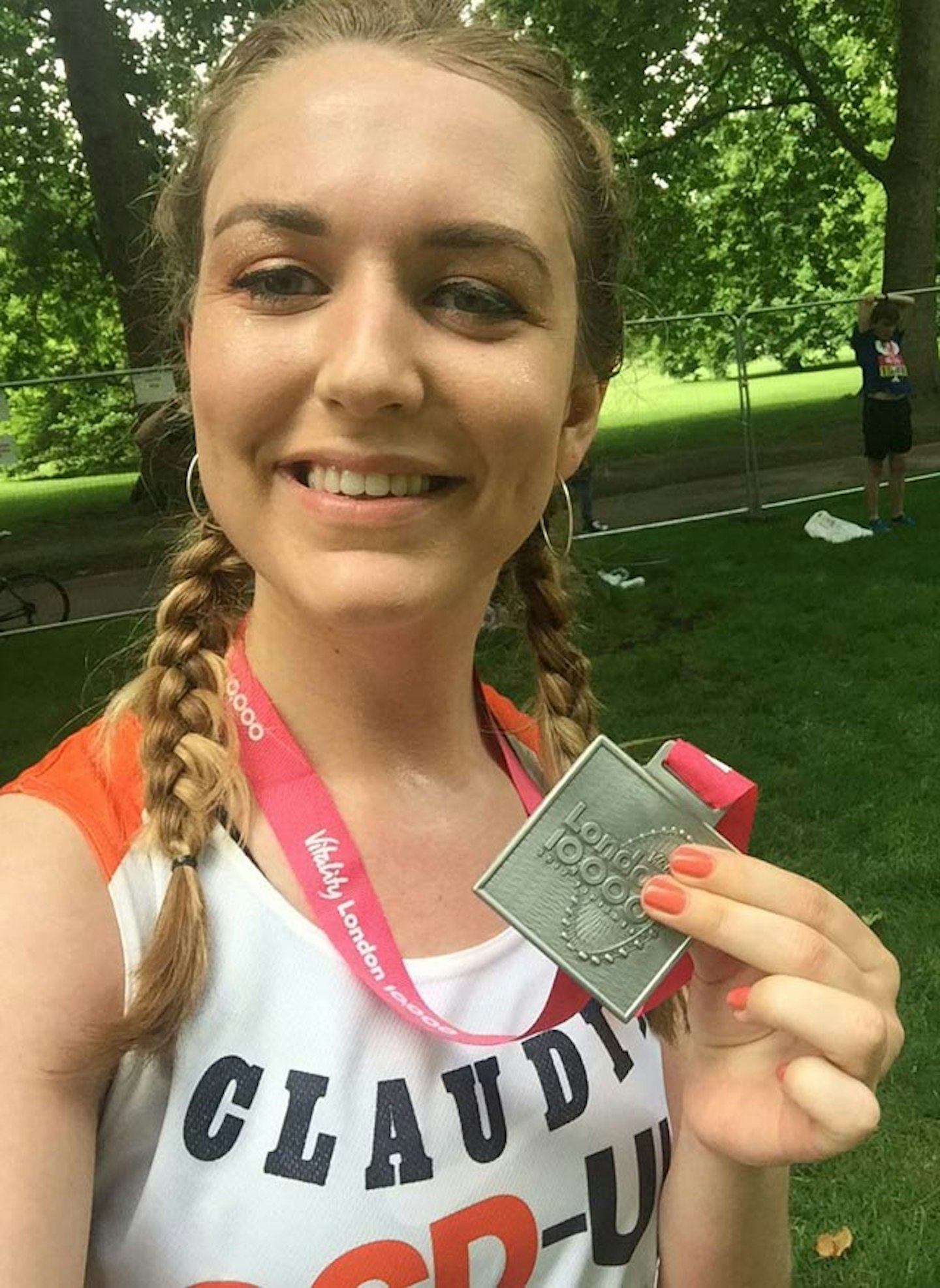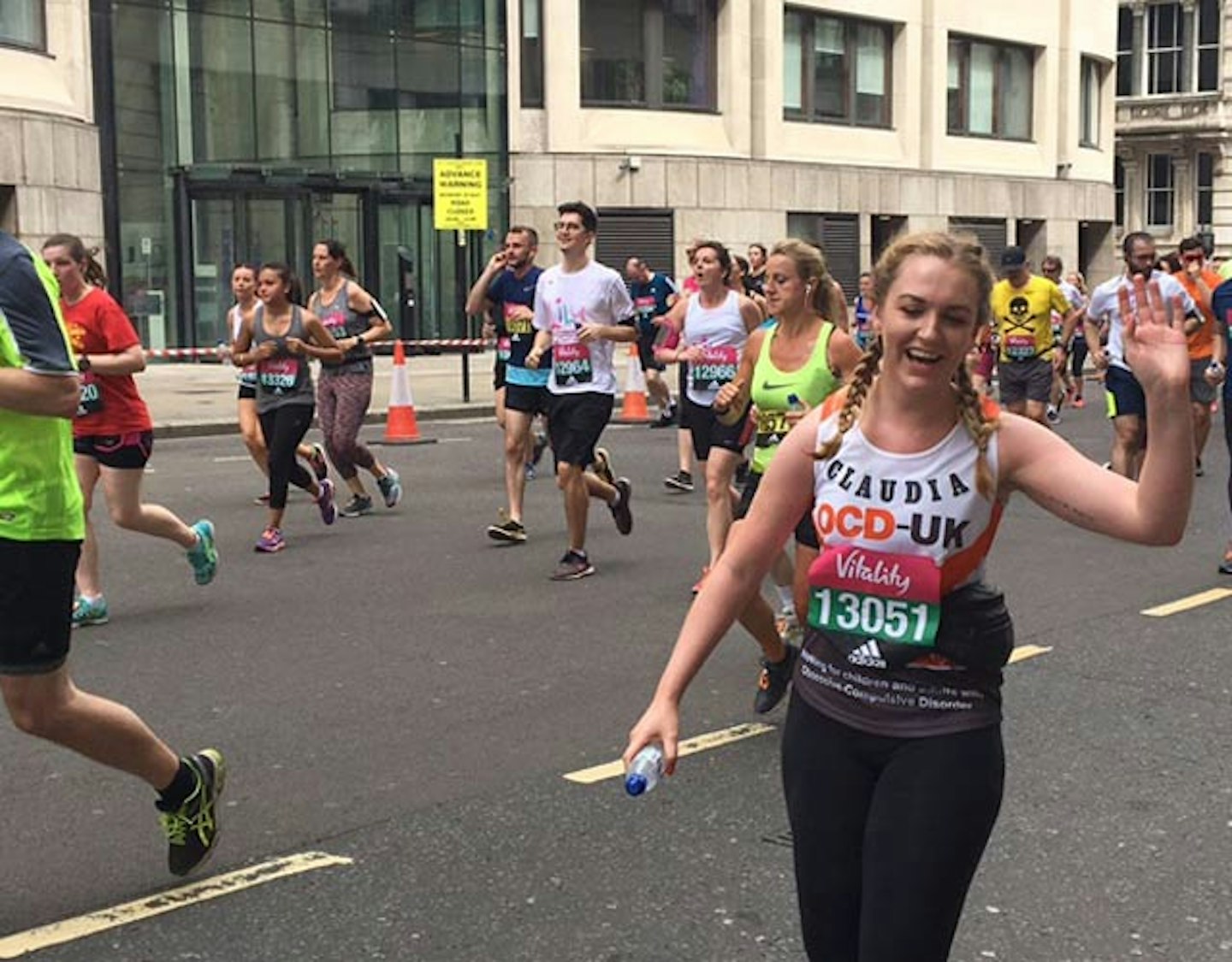How often do you go for a run for your mental health? We’ve all been there, laced up our shoes and headed out the door begrudgingly because we want to feel better about the way we look, and that’s more than ok. Yet we still view exercise, running in particular, as punishment – we dread going out for a 5k jog before work, because like it or not, it hurts. The link between our wellbeing and exercise is overlooked, with the positive effects of exercise on our mental health often being thrown off the track and forgotten about.
It’s estimated that over one quarter of the population suffer from some kind of mental health issues a year, with one in five people being treated for depression. Claudia Barnett has been treated multiple times for mental health issues since the age of 17. This is her journey with mental health and running, and how it shaped her, helped her and ultimately saved her.
Claudia is 23-years-old. At just 17, she was diagnosed with Purely Obsessional OCD (Pure OCD), a type of OCD that displays no outer symptoms but manifests in obsessive thinking, and thoughts, according to OCD UK.
For the past six years, Claudia has battled with her mental health through college, university, and now working life – but running has played a huge part in helping to separate the negative from the positive. You may recognise her from the BBC’s Mind Over Marathon series that was aired earlier this year.
‘I was lying in bed one night in the lead up to my A-Levels, and then all of a sudden I had a really graphic, terrifying thought. It was violent, and very concerning and completely out of my character. From that moment on it was all I could think about, my life changed from that point on.’
In Claudia’s case, she sat on her secret illness for years until she felt able to confine in anyone, which meant her compulsive thoughts took over her life.
‘A lot of my life suffered. I was a very ambitious, hard-working girl but from that moment on I was unable to focus on anything but these intrusive thoughts.’
Those with Pure OCD tend to become very secretive, because the intrusive thoughts force them to confront worrying fears. Suffering alone meant Claudia was unable to understand an illness more than 1.2% of the UK’s population suffer from. She was unable to eat, bathe or focus on anything but those thoughts about violence, relationships and rituals.
Once considered a rare condition due to the lack of knowledge, OCD effects 12 out of every 1000 people, with 50% of all cases falling into the severe category and less than a quarter classed as mild. Many people, like Claudia, feel reluctant to talk to anyone about their symptoms due to embarrassment or shame.
‘I thought I had gone mad, that I was fundamentally evil – because I didn’t understand what these thoughts were and why I was so obsessed with them. You completely lose touch with reality – like you’re living in a state of psychosis with only negative thoughts to focus on.’
Claudia felt that if she stopped, people would question her sanity but it got to the point where she was repeating phrases about killing herself so regularly that she decided she needed help. She confided in her best friend, who provided her with the support she needed to get medicial treatment, it was then she learned about her condition, and in turn was able to come to terms with it.
Two years after being diagnosed, Claudia secured a place at Bournemouth University. During her first two years at uni, she struggled. Not being able to tell anyone, and struggling with other mental health issues meant she had no one to turn to. It wasn’t until she moved to London to complete a placement year that she knew something needed to change. This is when she started running.

‘I’m not sporty at all, and I cringe at this now, but I started running because I wanted to lose weight. Doing the Couch to 5K (which is how she started) when you’re not very athletic is a lot harder than it sounds. Yet as I saw myself getting faster, it encouraged me to do less unhealthy things, and in turn it massively helped my mental health. After every run, I found I hated it less.’
Even though she had started her running journey, Claudia was still suffering with her health. While her intrusive thoughts were more manageable, she was struggling with personal relationships and insomnia, but after every run she felt brighter and better. It wasn’t until Claudia stopped running that she noticed how big a part it played in helping her feel more human.
‘Running helps me quieten the negative thoughts and focus on something that’s good for both body and mind. For me, it’s the most effective kind of mindfulness, and ultimately, self-care.’

She knows now that not running simply isn’t an option. ‘I came to the decision that I was going to have to keep running for the rest of my life, I made a deal with myself that I just had to keep at it as there’s no other option when it comes to my mental health.
Claudia now works as Digital PR Executive at a specialist travel firm, and runs a mental health focussed online magazine called Quiet Club. It’s through running that she has connected with people in similar situations to her, like in the Mind Over Marathon series, and continued her work as a mental health advocate.
For Claudia, running isn’t just about the physical benefits, it’s about clearing the mind and ridding herself of weighted, intrusive thoughts that once took over her life. She tells me that she ‘hates running, but loves having run’ because regardless of how tiring it is, and how much you ache, none of that matters when you’re finished.
Like many, Claudia has been able to make her mental health more manageable with the help of exercise. Local running clubs offer fantastic programs to get started, or there’s the Nike Run App, where you can tailor your own plan in the lead up to a race. Studies prove that regular exercise, around 150 minutes per week, can drastically improve our emotional and mental life, as well as improve our health. It’s all about starting, putting on those trainers and getting out the door – which is hard in the beginning, but Claudia is proof of how much the positives out weight the aches and pains.
If you, or anyone you know if struggling with their mental health, please seek medical advice from your local GP.
READ MORE: Exercising Too Hard For Too Long Can Cause Digestive Issues
READ MORE: Social Media Pressure Is To Blame For The Rise In Cosmetic Procedures
